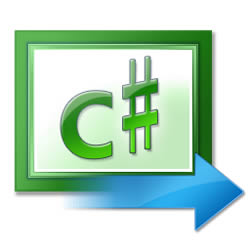Difference Between ASP and C#
Key difference: ASP stands for Active Server Pages. It is commonly known as Classic ASP or ASP Classic. It is a server-side scripting environment that is developed and released by Microsoft. C#, also known as C sharp, is an object oriented programming language. C# is a multi-paradigm programming language. It includes strong typing, imperative, declarative, functional, procedural, generic, object-oriented (class-based), and component-oriented programming disciplines.

ASP stands for Active Server Pages. It is commonly known as Classic ASP or ASP Classic. It is a server-side scripting environment that is developed and released by Microsoft. It was Microsoft's first server-side script engine for dynamically generated web pages. ASP was originally released as part of the Windows NT 4.0 Option Pack. It was meant to be an add-on to Internet Information Services (IIS). Since, then ASP has been superseded by ASP.NET, another product by Microsoft.
ASP is mainly used to create and run dynamic, interactive Web server applications. It also allows one to combine HTML pages, script commands, and COM components to create interactive Web pages and powerful Web-based applications. It also makes it easier to develop and modify the said Web applications.
After its original release, there have been two version releases. The ASP 2.0 introduced six built-in objects to the original, which were Application, ASPError, Request, Response, Server, and Session. ASP 3.0 introduced some additional enhancements such as Server.Transfer method, Server.Execute method, and an enhanced ASPError object. Additionally, ASP 3.0 also enabled buffering by default and optimized the engine for better performance. However, as of May 2013 there are no planned upgrades to ASP.
ASP was superseded by the ASP.NET. ASP.NET is a server-side Web application framework. ASPX stands for Active Server Pages Extended. It was designed for Web development to produce dynamic Web pages. It was released in January 2002 with the .NET Framework. It is mainly used to build dynamic web sites, web applications and web services.
ASP.NET is built on the Common Language Runtime (CLR). This allows programmers to write ASP.NET code using any supported .NET language. ASP.NET Web pages are also commonly known as Web Forms. They contain static (X)HTML markup. It also contains markup that defines server-side Web Controls and User Controls. This is where developers place all the rc content for the Web page.
In ASP.NET Framework 2.0, a new code-behind model was introduces. This allows static text to remain on the .aspx page, while dynamic code remains in an .aspx.vb or .aspx.cs or .aspx.fs file. The location of the dynamic code depends on the programming language used.
C#, also known as C sharp, is an object oriented programming language. C# is a multi-paradigm programming language. It includes strong typing, imperative, declarative, functional, procedural, generic, object-oriented (class-based), and component-oriented programming disciplines.
C# is based on the C programming language. It was originally developed by Anders Hejlsberg for Microsoft for use in its .NET framework. The C# language was later approved as a standard by Ecma (ECMA-334) and ISO (ISO/IEC 23270:2006). C# is one of the programming languages designed for the Common Language Infrastructure. C# is intended to be a simple, modern, general-purpose, object-oriented programming language.
 The design goals for C#, as listed by the ECMA standard:
The design goals for C#, as listed by the ECMA standard:
- The C# language is intended to be a simple, modern, general-purpose, object-oriented programming language.
- The language, and implementations thereof, should provide support for software engineering principles such as strong type checking, array bounds checking, detection of attempts to use uninitialized variables, and automatic garbage collection. Software robustness, durability, and programmer productivity are important.
- The language is intended for use in developing software components suitable for deployment in distributed environments.
- Source code portability is very important, as is programmer portability, especially for those programmers already familiar with C and C++.
- Support for internationalization is very important.
- C# is intended to be suitable for writing applications for both hosted and embedded systems, ranging from the very large that use sophisticated operating systems, down to the very small having dedicated functions.
- Although C# applications are intended to be economical with regard to memory and processing power requirements, the language was not intended to compete directly on performance and size with C or assembly language.
As it based on the C language, it is quite similar to it. It even shares some syntactic conventions with C. However, a disadvantage of C# is that, as it was developed by Microsoft for use in its .NET framework, it only works on Microsoft operating systems.
Both C# and ASP.NET are by Microsoft for its.NET framework. The main difference between the two is that ASP.NET is Server-side Scripting Language, whereas C# is a programming language. C# is often used as a programming language to develop applications in ASP.NET. C# is a CLS programming language designed for the .NET framework. Whereas, ASP.NET is part of the .NET framework allowing one to write web applications using any CLS compliant language such as C#, VB.NET, F#, etc.
Image Courtesy: johnwilliams92.info, codesmesh.com









Comments
good article,,
nagarajkt
Fri, 02/07/2014 - 23:47
Add new comment